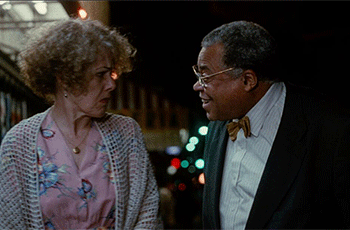
Oscar Micheaux Finally Premieres at Cannes, 70 Years After His Death
Eric Kohn 07/11/2021Historians may now acknowledge Oscar Micheaux as a pioneering Black filmmaker, and the industry could be catching up. However, that acclaim certainly didn’t follow him through his lifetime, when the hustling novelist and director made complex dramas about Black life in America across three decades, starting with the silent era and continuing for many years after that. By the time of his death in 1951, the child of former slaves in Kentucky had written six novels and directed 44 films, but around 80 percent of them have been lost.
Needless to say, most people have been late to the party when it comes to Micheaux’s career, including Cannes. But the festival’s Cannes Classics sidebar made up for that this year by screening a new restoration of Micheaux’s 1935 crime thriller “Murder in Harlem,” alongside a new documentary about the filmmaker’s contemporary resonance, “Oscar Micheaux – The Superhero of Black Cinema,” directed by Francesco Zippel. The double bill marked the seventieth anniversary of Micheaux’s death as interest in his career has started to rise.
Italy’s Cineteca di Bologna and Martin Scorsese’s The Film Foundation, and the George Eastman Museum produced the 4k restoration of “Murder in Harlem,” which adapts the real-life events from Georgia in 1913 when a Black man when was falsely accused of a murder actually committed by a white man. While lesser known than Micheaux’s most celebrated works, 1920’s “Within Our Gates” and the striking 1925 Paul Robeson drama “Body and Soul,” it contains one of the boldest moments in the filmmaker’s career: When a nightwatchman discovers the corpse of a white woman in the first scene, he gazes directly into the camera, as the terror on his face reflects his awareness that he’ll be accused of the crime.
It’s a stunning window into the constant fear of racial assault that surrounded Micheaux’s era, and one of several key scenes singled out in Zippel’s documentary, which Cineteca di Bologna co-produced with Sky. (No U.S. distribution plans have been announced.) The new movie takes a modern approach to Micheaux’s legacy, assembling a wide range of talking heads to discuss his contemporary resonance while recapping his rocky career. Historians such as the Academy’s Jacqueline Stewart and biographer Patrick McGilligan outline Micheaux’s journey from Kentucky to Iowa and around the country, as he launched an ambitious DIY effort to sell his novels door to door.
That eventually landed him his first directing gig, to adapt his own “The Homesteader,” and he spent much of his career overseeing the releases of the projects to come. The movie also turns to contemporary filmmakers for insight, including Amma Asante, Kevin Willmott, and the late John Singleton. Collectively, they analyze Micheaux’s distinctive ability to explore Black life in America through an unfiltered lens, providing a repudiation of the racist sentiments emboldened by the success of D.W. Griffith’s “The Birth of a Nation.” Ample footage from Micheaux’s work compliments this analysis: “Within Our Gates” features a harrowing sequence in which a young boy’s parents are lynched by a white mob as the boy escapes just in time. That tension between white and Black establishments continued to percolate throughout the Micheaux movies to come, and the documentary makes the case for many of them.
Film scholar Richard Peña pushes back on assessments that Micheaux was an unskilled director, arguing instead that he was “playing with form,” and much of the footage supports this perspective. Others, including musician Chuck D. and The Old Vic’s Kwame Kwei-Armah, explore the cultural value of Micheaux’s story, in particular the way his “pull yourself up by your bootstraps” philosophy enabled him to succeed in an industry that was rigged against Black artists from the start. The documentary shows how while Micheaux’s legacy faded in the much louder call for policy reforms in the Civil Rights era, his artistry continues to inspire future generations. “I think you can draw a direct line from an Oscar Micheaux to a Spike Lee to a Sam Pollard to a Shaka King,” one subject says.
Only five pictures of Micheaux have been uncovered from throughout his life, but “Oscar Micheaux – The Superhero of Black Cinema” also includes some remarkable behind-the-scenes footage of the filmmaker directing in the 1920s, fully in command of his actors as he gestures from beside the camera. Though Micheaux expert McGilligan says that Micheaux’s career is “the greatest American story that nobody knows anything about,” the existence of this tribute and restoration means that could change, and soon.
IndieWire